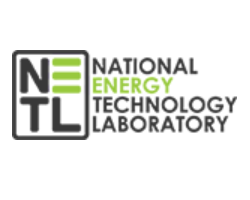NETL Team Uses Microwaves to Cut Costs of Direct Air Capture Technologies

March 3, 2023 - NETL researchers have reported the successful use of microwaves to accelerate sorbent regeneration – results that can lead to substantial reduction of expensive water and energy requirements of some promising direct air capture (DAC) technologies.
In a new paper published in January in Materials Today Sustainability, NETL researcher Fan Shi and his team explain that the research shows that room temperature microwave-accelerated regeneration of sorbents for DAC can advance the science of carbon dioxide (CO2) capture. Shi and co-author McMahan Gray also explained their work in a Spotify podcast.
The team wrote in its article that, “When powered by renewable energy or waste heat, DAC can be considered as a potentially viable solution for the consequences of fossil fuel use. Because DAC does not rely on point sources of emission, it is more robust than conventional carbon capture and sequestration strategies and particularly advantageous for addressing CO2 emissions from all sources, including mobile systems. As the atmospheric concentration of greenhouse gas may already be above the threshold for causing substantial climate change, it becomes imperative to develop DAC technologies to achieve ‘negative emissions.’”
Some DAC technologies that pull CO2 directly out of the air independent of point sources use sorbents and their chemical reactions to work. Sorbents are materials used to absorb liquids or gases. Those sorbents must be regenerated occasionally to remain effective and so that CO2 can be collected for storage or utilization. The sorbent can then be reused.
A pivotal challenge to DAC development is the fact that CO2 so strongly binds to the sorbents that regeneration efforts rely on temperature, pressure or humidity swing cycles, which require a superheated steam.
In addition, the traditional regeneration steps often degrade the sorbents used in DAC technologies.
Sorbent regeneration is accomplished through a thermal desorption process, which uses heat to increase the volatility of contaminants so that they can be removed. That process requires costly amounts of water and energy to attain the high heat needed for sorbent regeneration.
“Because operations of adsorption and regeneration are in the same room temperature range, it collectively lowers the reactor cooling and heating/regeneration energy duties,” Shi explained. “This energy savings vastly reduces consumptive water use for both water and steam, helping to make DAC technology truly environmentally friendly.”
The research is the result of collaborations that involved the University of Wyoming, Johns Hopkins University, University of Delaware, and NETL.
Shi said the microwave-accelerated regeneration of sorbents, known as MARS, does not require steam regeneration and a heat exchanger, which makes it an attractive process for CO2 capture in water-stressed regions of the U.S.
Shi said that microwave-assisted CO2 desorption from solid sorbents like silica, zeolites, activated carbon and polymeric adsorbents features fast kinetics can replace the thermal desorption approach, which translates to lower energy consumption.
“This study has developed a near-room temperature microwave-accelerated regeneration of sorbents process using a basic immobilized amine sorbent for CO2 capture,” the paper concludes.
In addition to Shi, NETL researchers who contributed to the report included Tuo Ji, Chris M. Marin, Walter C. Wilfong, Qiuming Wang, Yuhua Duan, Yee Soong, and Gray.
NETL is a U.S. Department of Energy national laboratory that drives innovation and delivers technological solutions for an environmentally sustainable and prosperous energy future. By using its world-class talent and research facilities, NETL is ensuring affordable, abundant and reliable energy that drives a robust economy and national security, while developing technologies to manage carbon across the full life cycle, enabling environmental sustainability for all Americans.

